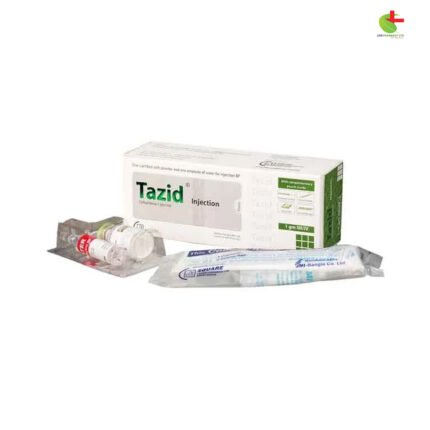Fusid
9.00৳ Piece
- Fusid, a potent diuretic, is utilized to address a spectrum of conditions ranging from congestive cardiac failure to hypertension and renal failure.
- Its active component, furosemide, acts swiftly on renal tubular function, inhibiting sodium and chloride transport.
- Dosage is tailored based on patient factors, with administration options including oral and intravenous routes.
- Careful monitoring is essential due to potential interactions and side effects like electrolyte imbalances and hyperglycemia.
- Stored away from light, Fusid should be handled with caution, dispensed only with a physician’s prescription.
 Brand
Brand
|
Square Pharmaceuticals PLC |
|---|---|
 Generics
Generics
|
Furosemide |
Indications:
Fusid is indicated for various conditions including fluid retention associated with chronic congestive cardiac failure, maintenance of fluid excretion in acute renal failure, hypertension and hypertensive crisis, and support of forced diuresis.
Pharmacology:
Furosemide, the active ingredient in Fusid, is a potent diuretic that acts on renal tubular function, inhibiting sodium and chloride transport in the ascending limb of the loop of Henle.
Dosage & Administration:
Dosage varies based on the condition being treated, patient age, and renal function. It can be administered orally or intravenously.
Interaction:
Fusid may interact with ACE inhibitors, lithium, and nephrotoxic antibiotics, affecting blood pressure and serum lithium levels.
Contraindications:
Contraindications include anuria, electrolyte deficiency, pre-comatose states associated with liver cirrhosis, and hypersensitivity to furosemide or sulphonamides.
Side Effects:
Side effects may include disturbances in electrolytes and water balance, alkalosis, uric acid retention, acute gout, hyperglycemia, and glycosuria.
Pregnancy & Lactation:
Furosemide should be cautiously used during pregnancy and lactation due to its category C classification and potential inhibition of lactation or passage into breast milk.
Precautions & Warnings:
Patients with prostatic hypertrophy or impaired micturition, as well as those on ACE inhibitors, should use Fusid with caution. Adverse effects may impair driving and other hazardous tasks.
Overdose Effects:
Overdose may lead to electrolyte and fluid imbalances, hypovolemia, dehydration, and cardiac arrhythmias. Management includes supportive measures to limit further absorption.
Therapeutic Class:
Fusid belongs to the class of loop diuretics.
Storage Conditions:
Store Fusid away from light and use it before the expiry date. Keep it out of the reach of children and dispense only with a registered physician’s prescription.













Reviews
There are no reviews yet.